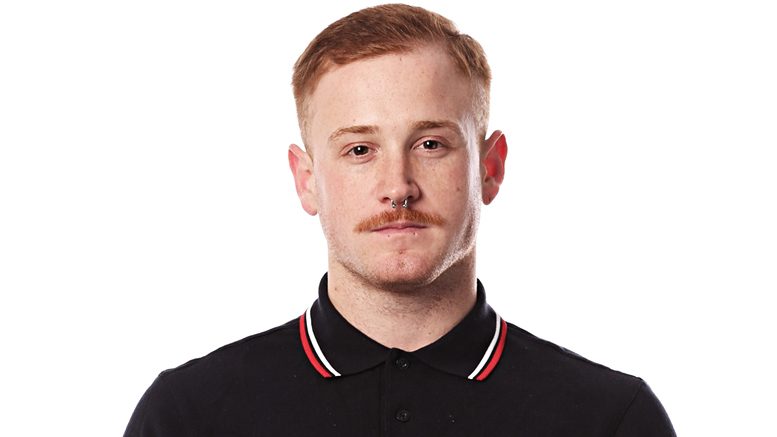By treating citizens of this country in such a manner, the second class citizenship feeling develops
By: Keegan O’Brien*/Special to TRT—
On Wednesday evening March 23rd North Carolina Gov. Pat McCrory signed into law the Public Facilities Privacy and Security Act, better known House Bill 2 (HB2) or the “bathroom bill”—the most far-reaching and discriminatory anti-transgender law in the country. The law has several components. First, it prohibits city governments from passing anti-discrimination laws that override state legislation, specifically overturning a recent ordinance passed in Charlotte banning discrimination against LGBTQ people. Second, it mandates that all public schools require people to use the bathroom that aligns with their birth certificate. Third, and this has been by far the most overlooked feature of the bill, it prohibits cities from raising the minimum wage above the current state level.
Anticipating that the bill would be controversial and spark opposition, Republicans rushed it through during a special session, giving legislators and the public no time to review it. Every Republican and eleven Democrats voted in favor of the bill in the House. In protests of the GOP’s maneuvering, Senate Democrats walked off the floor and the bill went on to pass unanimously
To justify their discrimination, Gov. McCrory and his bigoted Republican cohorts have deployed a slew of vile transphobic rhetoric, claiming that trans people are deranged and that anti-discrimination laws are simply cover for predators to use bathrooms so they can victimize women and children. But this couldn’t be farther from reality. There have been zero reported cases of trans people, or anyone for that matter, using a different bathroom in order to kidnap, abuse, or prey on women or children. Gov. McCrory’s story is pure fiction.
There have been, however, countless cases of trans people being attacked, from verbal harassment, to physical assaults, to even being killed, for using the bathroom of their choice. In the most recent national Transgender Discrimination Survey report, 63 percent of respondents reported experiencing a serious act of discrimination in their lifetime, and according to a 2013 Williams Institute report 70% of trans people report being denied entrance, harassed, or assaulted while trying to use the restroom.
In addition to codifying discrimination and second class citizenship, North Carolina’s bill has whipped up a climate of transphobia and given confidence to the worst forms of bigotry. The increase in trans suicides animates the human toll HB2 has had. Trans Lifeline, a crisis hotline for transgender people in North Carolina has reported a 150% increase (http://goo.gl/Pt0vJr) in calls since last month when the bill was passed. Many young people calling in report feeling like they have “lost hope” in terms of whether things will get better for them at all. Transphobia kills, and Gov. McCrory and every legislator that played a role in passing HB2 have blood on their hands.
Gov. McCrory’s actions are not unprecedented, however. From policing bars and cruising spaces to ordinances criminalizing wearing more than three items of clothing of the opposite gender, North Carolina’s law is continuing a long tradition of state sponsored gender policing and criminalization that has been present in LGBTQ communities in the United States since the late 19th century. Political elites have long used narratives of criminality to portray queer and gender non-conforming people as sexual predators as a way to engineer moral panic, prop up the sexual and gender arrangements of the nuclear family, and distract working class people from the real economic and political forces threatening their lives.
Many are asking, why now? With the Supreme Court recently legalizing same-sex marriage and the increasing cultural visibility and acceptance of trans people, it seems like North Carolina’s law is relic from a bygone era. But around the country anti-transgender laws continue to rear their ugly head. Lawmakers in least fifteen other states, including South Carolina, Tennessee, Kansas, Illinois, and Minnesota, have considered so-called “bathroom bills” this year, with South Dakota passing their own version in February before it was vetoed by the governor.
On one level, these laws are an attempt by the GOP’s Religious Right to regain ideological ground in the Culture Wars. The legalization of same-sex marriage and the sea-change in public opinion toward favoring LGBT equality has dealt a major blow to the Christian Right’s agenda and its rigid binary concepts of gender and sexuality. In an effort to make up for lost ground the Religious Right has set its eyes on a new target, trans people’s right to use the bathroom, by painting them as predators and directly attacking the legitimacy of trans identity. The fluidity inherent to trans identity undermines the rigid hetero-normative gender binary essential to propping up the privatized nuclear family, which capitalism depends on as the primary reproductive unit to raise and care for the next generation of workers. Defending that institution isn’t a moral question for the ruling class, but an economic and political necessity to maintaining the operation of capitalism.
But North Carolina’s “bathroom bill” is about more than restoring conservative social values for their own sake. HB2 is an attempt to scapegoat trans people in the service of neo-liberal capitalism. One of the most overlooked features of the bill is its restriction on raising the minimum wage. This isn’t a coincidence. North Carolina has become a heaven for companies looking for low-wage non-unionized labor. Over the past thirty years North Carolina has attracted businesses by implementing neo-liberal economic policies that have lowered taxes on corporations, and the rich dolled out huge sums of government subsidies. One of the ways the state has accumulated money is by remodeling the tax structure and shifting the burden onto workers and the poor in the form of increasing sales tax. The state has also worked hand-in-hand with corporations to keep wages low and shut out unions, making North Carolina’s union membership rate the lowest in the country, with just 1.9 percent of wager earners in a union, and more that 1.7 million people, or roughly 20 percent of the population, living in poverty.
In a society with such extreme inequality, where one in five people live below the poverty line, it’s necessary to divide working class and poor people who would otherwise have everything in common with one another. Scapegoating oppressed groups for society’s ills, whether it be LGBTQ people, people of color, immigrants, public sector workers, Arabs and Muslims, or any other marginalized group, has been a long-standing tactic of the American ruling class to maintain their class rule by fragmenting the majority and redirecting class anger away from the economic and political elites responsible for engineering exploitation and oppression.
Thankfully, however, the widespread backlash and growing opposition movement in North Carolina seem to indicate that the right wing isn’t getting the results it wants. Far from hurting the struggle for trans equality as some queer activists argue, it appears that the progress around gay rights and equal marriage over the past decade have helped kick down the barriers of social prejudice and pave the way for the widespread support for trans rights today.
It’s no surprise then that immediately after Gov. McCrory signed House Bill 2, LGBTQ activists and their allies began organizing—and found support from ordinary people across the country. In the following days several thousand people hit the streets in the Capital and cities across the state. Activists even organized a sit-in and shut down the street in front of the State House. The influence of the #BlackLivesMatter movement was visible, from the prominent role played by Black queer and trans activists in the protests and the connections made by organizers between race and class and the disproportionate impact the law would have on queer and trans people of color who already face higher levels of poverty, unemployment, and violence.
Even much of Corporate America, it seems, has gotten on board with opposing North Carolina’s bill. Over 120 “leading business leaders and CEOs” signed an open letter by the Human Rights Campaign, which included Facebook founder Mark Zuckerberg, Yahoo CEO Marissa Mayer, Starbucks CEO Howard Schultz, and Apple CEO Tim Cook. While it’s a positive sign that businesses now feel pressured to support legal equality, evidence shows that the rhetoric of “Progressive Capitalists” (https://goo.gl/c65VJ3) is more myth than reality.
Considering many of these same companies funded the campaigns of Democratic and Republican Senators who voted for HB2 and that corporate money means narrowing the demands and lowering the political horizons of the movement, activists shouldn’t depend on the 1% to wage our fight.
The Democratic Party’s opposition to the bill reflects the influence the LGBTQ movement has had on American politics in quite a short span of time. But activists should be weary of attempts by the Democratic Party to hijack the movement emerging in North Carolina. As trans activist Eric Mahoney explains in Socialist Worker,: “North Carolina’s ‘bathroom bill’ legislation will likely be used by mainstream LGBTQ organizations as a call to get out the vote for the eventual Democratic presidential nominee, Hillary Clinton, who the Human Rights Campaign has already endorsed. We must resist the push to fold our energies into the Democratic Party and remember that change is made in the movements and struggles of ordinary people, not the halls of government.”
Thankfully there are signs that that movement is taking shape. North Carolina NAACP presidents Rev. William Barber has put out the call for a series of mass sit-ins if the law is not repealed. In a recent press conference Rev. Barber declared: “We cannot be silent in the face of this race-based, class-based, homophobic and transphobic attack on wage earners, civil rights, and the LGBTQ community. Together with our many allies, we will coordinate a campaign of nonviolent direct action along with other forms of nonviolent protest.”
Rev. Barber is right. The only remedy for the transphobia and scapegoating being peddled by the bigots in the Republican Party is by deepening the solidarity and struggle on display in the streets of North Carolina.
*Keegan O’Brien is a queer socialist activist and writer from Boston who recently graduated from the University of Massachusetts Boston with a Master’s degree in Education. His writing has appeared in The Nation, Electronic Intifada, Jacobin Magazine, Socialist Worker, and the International Socialist Review.







